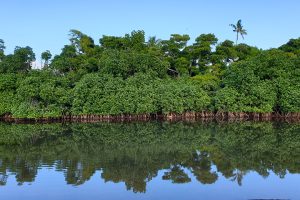The Council of the Global Environment Facility (GEF) approved the final Work Program under the GEF’s seventh replenishment (GEF-7) cycle amounting to USD 165.8 million. Convening as the Council for the Least Developed Countries Fund/Special Climate Change Fund (LDCF/SCCF), the Council also endorsed the last GEF-7 work program for the LDCF totaling USD 72.4 million.
The 62nd meeting of the GEF Council took place from 21-23 June 2022, in McLean, Virginia, US, convening in person for the first time since the COVID-19 pandemic was declared in early 2020.
The Work Program for the GEF Trust Fund comprises 18 projects and one program from all five focal area envelopes – biodiversity loss, chemicals and waste, climate change, international waters, and land degradation – and from the non-grant instrument funding window. The Secretariat said “the Work Program would contribute to a green and blue recovery and direct significant resources to small island developing States (SIDS) and least developed countries (LDCs), with Africa holding the largest share.”
The LDCF work program comprises eight projects, of which four address “urgent and immediate climate change adaptation priorities in at least four LDCs.” The Earth Negotiations Bulletin (ENB) summary report of the meeting notes that over the past four years, the LDCF has supported “each of the 47 LDCs, with projects that will bring 3.2 million hectares of land under climate-resilient management, mainstream climate resilience in 869 policies, and train nearly 700,000 people on identifying and managing climate risks and adaptation measures.”
The Council also endorsed the next four-year replenishment period for the GEF. According to the ENB summary, “[n]egotiations for the eighth replenishment of the GEF Trust Fund (GEF-8) took place over the last two years and concluded with pledges of USD 5.33 billion to support projects that bring global environmental benefits for people and the planet.” This level of funding represents a 30% increase from GEF-7.
Council Members were briefed by the Chair of the Scientific and Technical Advisory Panel (STAP), Rosina Bierbaum, on opportunities for the GEF-8 period, including enabling transformational change through the “transformation/risk/innovation trio” – an exercise that “will require innovation, which can entail risks.”
During a dialogue with the conventions for which the GEF serves as a financial mechanism, Council Members received updates from the Executive Secretaries of the UNFCCC, the Convention on Biological Diversity (CBD), the Minamata Convention on Mercury, and the Basel, Rotterdam and Stockholm (BRS) Conventions and from the Deputy Executive Secretary of the UN Convention to Combat Desertification (UNCCD).
Rolph Payet, BRS Conventions Executive Secretary, highlighted that the Secretariat is developing a strategy to achieve the “maximum possible” elimination of PCBs by the upcoming 2025 and 2028 deadlines, and invited Council Members to explore how to best “leverage the GEF-8 replenishment in support of this goal.”
Among other agenda items, the Council considered GEF support to sustainable forest management (SFM), the report of the Ad-Hoc Working Group on Governance, and preparations for the seventh meeting of the GEF Assembly, which is expected to take place in Vancouver, Canada, in mid-2023. [ENB Coverage of the 62nd Meeting of the GEF Council]

